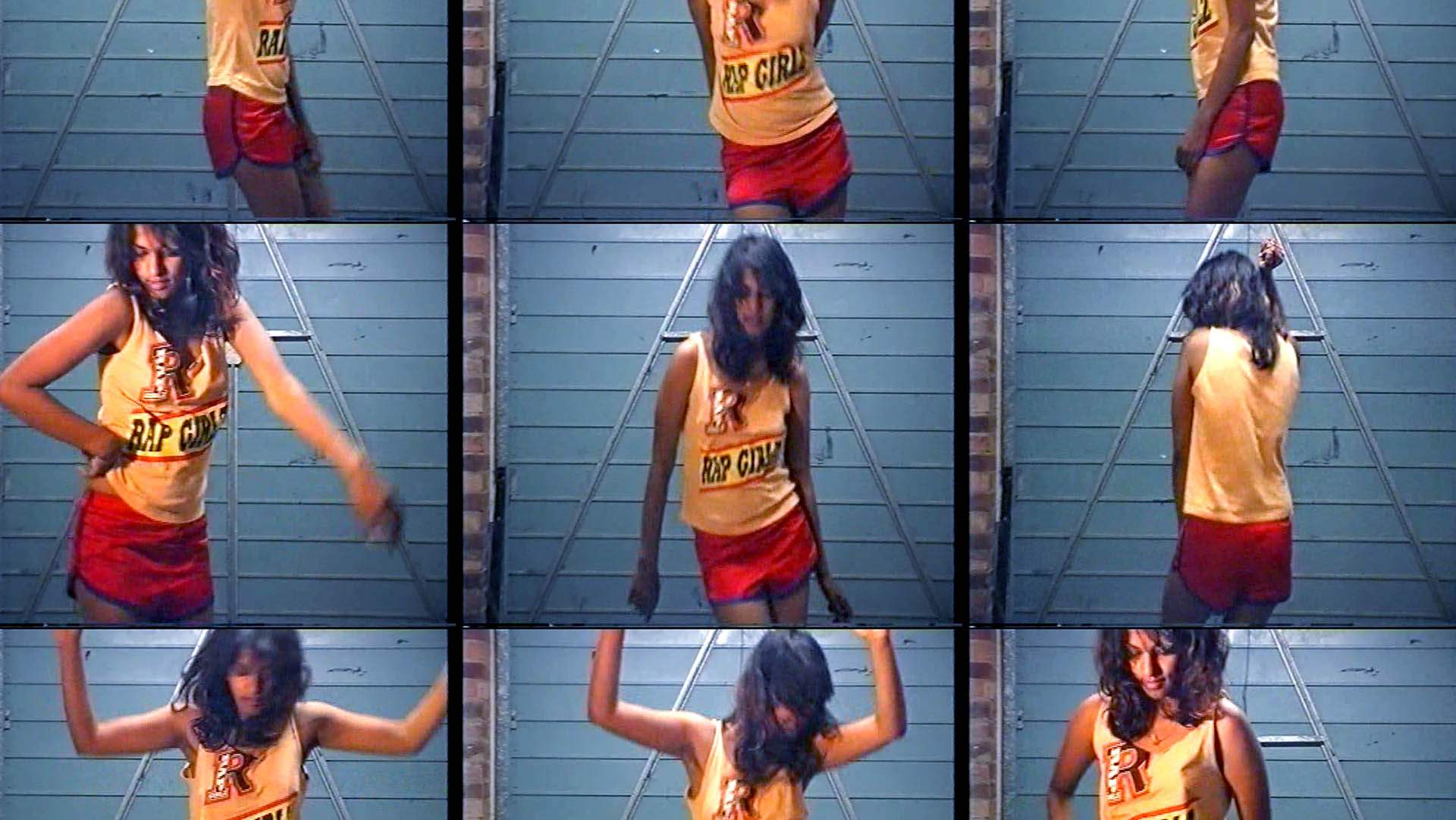Matangi / Maya / M.I.A.
An engaging, warts-and-all look at the personal and professional life of the Sri Lankan-born hip hop star.
Overview
"Why are you a problematic pop star?" filmmaker Steve Loveridge asks M.I.A. "Why don't you just shut up and make a hit?" she counters. The tongue-in-cheek exchange takes place in the opening minutes of documentary Matangi / Maya / M.I.A., but it couldn't better encapsulate the film's message. The world expects its singers, actors and icons to dazzle when they're performing, and then to keep quiet otherwise, as the backlash to any celebrity who states a political opinion continually demonstrates. But, from the outset, that was never going to be M.I.A. She was never going to simply make a splash on stage, appear meek and polite elsewhere, and keep her thoughts to herself. If you don't like that, she doesn't really care.
Drawing upon home video footage filmed over decades, compiled by M.I.A.'s art school pal Loveridge and soundtracked by her songs, Matangi / Maya / M.I.A. is a statement. It's a warts-and-all portrait of the Sri Lankan-born British rapper, and obviously an authorised account — but it provides an in-depth chronicle rather than an easy, superficial celebration. The film wants to understand the 'Boyz' and 'Paper Planes' hitmaker, not venerate her. It wants audiences to experience her reality, and to see musicians as more than just famous figures. As the documentary follows M.I.A.'s personal and professional ups and downs, that's hardly a simple process.
Born Mathangi Arulpragasam, called Maya by her friends and family, and known to the world under her stage name, M.I.A.'s tale has many parts, any of which could've furnished a film by themselves. If you've danced to her music, or watched when she gave the finger during her 2012 Super Bowl performance, but haven't ever peered deeper, then consider Matangi / Maya / M.I.A. an M.I.A. history lesson. She grew up in war-torn Jaffna until she was 11, when most of her immediate family fled to South London, leaving her Tamil Tiger father fighting at home. Adjusting to life as a refugee in Britain was far from easy, with her performative, provocative nature apparent in early clips. Originally, she actually studied to become a documentary filmmaker, however working for UK band Elastica brought her into the music realm.
Scribbling down lyrics for Elastica lead singer Justine Frischmann, recording her debut track on a $300 keyboard, racing up the charts, pairing up with Diplo, singing with Madonna — all of this follows. So does M.I.A.'s first trip back to Sri Lanka, her social activism and plenty of headlines about her political leanings. Frequently seen chatting to the camera, and also giving the film its snippets of audio narration, the singer explains it all: "I had really strong ideas about what music I liked, what made me dance and what I wanted to say".
In exploring what M.I.A. wanted to say — and how, and why — Matangi / Maya / M.I.A. takes its cues from its star. Busy and energetic, the doco flits from one chapter in her life to the next like it just can't keep still. That feeling is only heightened by the film's low-res footage, but the immediate, unpolished atmosphere is the entire point. In fact, it's increasingly the driving factor behind most music documentaries today. At a time when social media gives fans access to their idol's thoughts and feelings, movies are following suit. Not only do flicks like Amy, Whitney, Cobain: Montage of Heck and now Matangi / Maya / M.I.A. tell their subject's stories by using their own words, but they use every means at their disposal to convey the chaos and complexity swirling behind the fame.
Of course, there's one key difference that distinguishes Matangi / Maya / M.I.A. from other recent music docos that rely heavily on personal, never-before-seen material. Unlike its peers, this isn't an account of tragedy. Instead, it's the movie that Amy Winehouse, Whitney Houston and Kurt Cobain aficionados wish they could watch, and that M.I.A. devotees and newcomers alike will find engaging and fascinating. From her defiant riffing with the director in the movie's initial moments, to her refusal to fit the labels thrust upon her through her career, this is a chronicle of the messiness that comes with being human — whether you're a hip hop star singing at the Grammys, someone fighting for a cause you believe in, or a woman trying to invest meaning in her life and actions.





